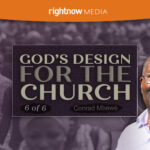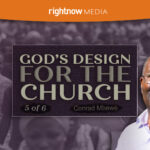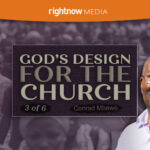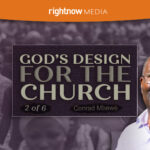This series started with the question: who should lead God’s church? The answer to this question must come from God, in the Bible, since the church belongs to him; not men. Therefore, this article, the fourth of the series, continues to unpack eldership in the local church. We saw in the previous article that while elders have authoritative oversight of the church, they must never think of themselves as anything other than servants. Below we’ll see that among the elders will be those whose work is preaching and teaching.
Among the elders will be those whose work is preaching and teaching.
Paul referred to such when he wrote to Timothy saying, “Let the elders who rule well be considered worthy of double honour, especially those who labour in preaching and teaching” (1 Timothy 5:17). In some churches, these are called “pastors,” while in others they go by different titles. Paul’s appeal here is that such individuals should be paid by the church and they should be paid well. It is beyond the pale of this article to go into details about this except to emphasise two things.
Churches Need Preaching Elder(s)
First, it is important to have someone within the church’s leadership who preaches God’s word regularly. Such a person should have a sense of calling to this work and should clearly be gifted as a preacher. He will fulfil the kind of role that Timothy and Titus fulfilled in the New Testament.
A preaching elder should have a sense of calling to his work and be gifted as a preacher.
Paul wrote to Timothy saying, “All scripture is breathed out by God and profitable for teaching, for reproof, for correction, and for training in righteousness, that the man of God may be complete, equipped for every good work. I charge you in the presence of God and of Christ Jesus, who is to judge the living and the dead, and by his appearing and his kingdom: preach the word; be ready in season and out of season; reprove, rebuke, and exhort, with complete patience and teaching” (2 Timothy 3:16-4:2).
A church that lacks such a person is lacking an essential gift of God to his church. The health and growth of the church will inevitably be stunted.
A Plurality—Not Hierarchy—of Elders
Second, it is equally important that such a person work within the church’s leadership and not on top of it. Peter, an apostle, called himself “a fellow elder” (1 Peter 5:1). Also, in Acts 15, when the issue of circumcision was being settled by the leaders of the church in Jerusalem, the apostles and elders did this together (Acts 15:2, 4, 6, 22). Elders do not report to a pastor. He is one of them. They work together as a team.
Elders do not report to a pastor. He is one of them.
Due to the centrality of preaching the word in the life of the church, the person designated “pastor” will provide leadership to the rest of the team of elders in the church. However, he does not do so as one to whom the rest are accountable. There should be mutual accountability between the pastor and the rest of the elders. It bears repeating: the pastor is one of the elders and not above them.
Who Qualifies to Be an Elder?
Quite simply, churches need at least one elder with a gift for preaching; only, this elder is in no way in authority over the other elders. Together, they make up the church’s eldership. In the next article we’ll consider the biblical qualifications for elders.
This article was adapted from God’s Design for the Church: A Guide for African Pastors and Ministry Leaders, by Conrad Mbewe, Copyright © 2020, pp. 101-102. It is used with the permission of Crossway, a publishing ministry of Good News Publishers, based in Wheaton, IL. Purchase a copy at Christian Book Discounters. You can read a review of it here, as well two series of articles adapted from the book dealing with: (1) The Church and Money; and (2) Church Discipline.














